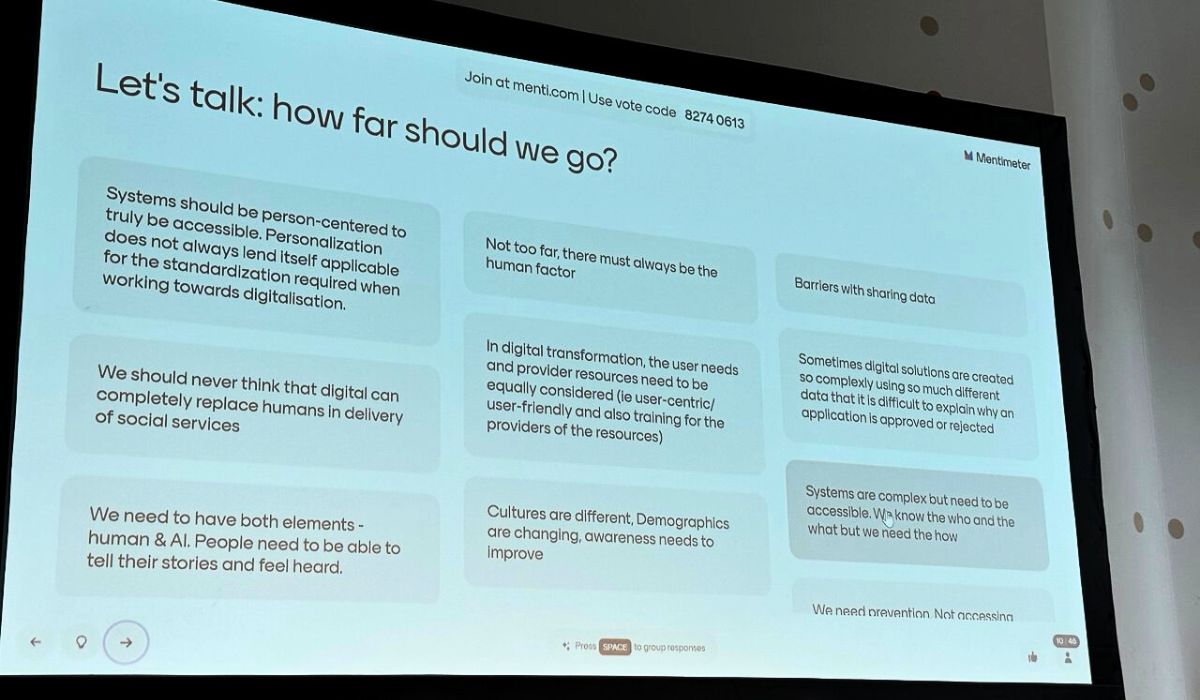The balance between technology and human expertise in the social sector is becoming an increasingly pressing topic across many European countries — including Ukraine. At Medirent, we have unique experience in building digital social systems, which gives us a deep understanding of the challenges that governments face on this path.
At the European Social Services Conference 2025, we joined the discussion session hosted by KPMG and RAND Europe, focused on data integration in the social sector.
A key strategic question guided the conversation: how can technologies help improve the quality of social services — not by replacing people, but by amplifying their role?
Key insights we took away:
- Without a unified data system, it’s impossible to ensure the targeted delivery of services. It may sound simple, but in practice, integrating registries, services, and agencies remains a significant challenge.
- Digitalization doesn’t eliminate “manual work” — it redefines it. People remain indispensable in complex cases and contexts that no algorithm or formula can fully capture.
- Trust in digital services directly depends on how ethically we handle personal data. This is not only a matter of legislation but also of development culture.
Another important dimension of the discussion was the role of communities in shaping data and creating personalized services. After all, the needs of individuals and specific communities should be at the center of the digital architecture of social services.
The session spotlighted examples from the UK and Italy, which demonstrate practical approaches to combining automation with human expertise in social work. These cases prove that digitalization is not about eliminating human involvement but rather about transforming processes to achieve a thoughtful balance between technology and the expertise of social professionals.
While each country operates within its unique context, the demand for systematic approaches, transparency, and ethical standards is universal.
We firmly believe that technology is just a tool. The foundation of effective social policy remains people — their needs and their lived experiences.
What do you think? What should be the role of technology in the social sector: to empower professionals or to gradually replace them?









